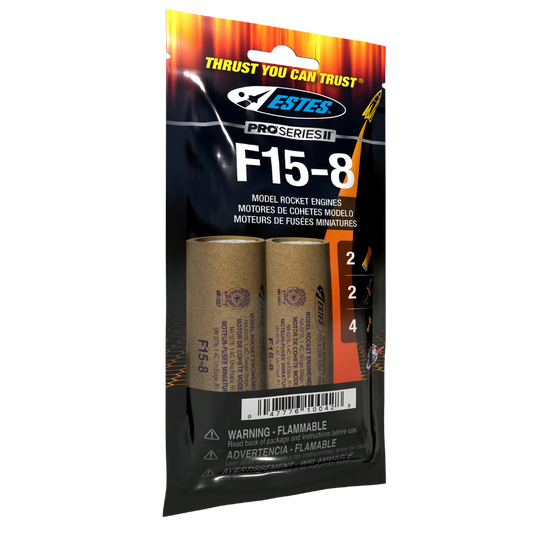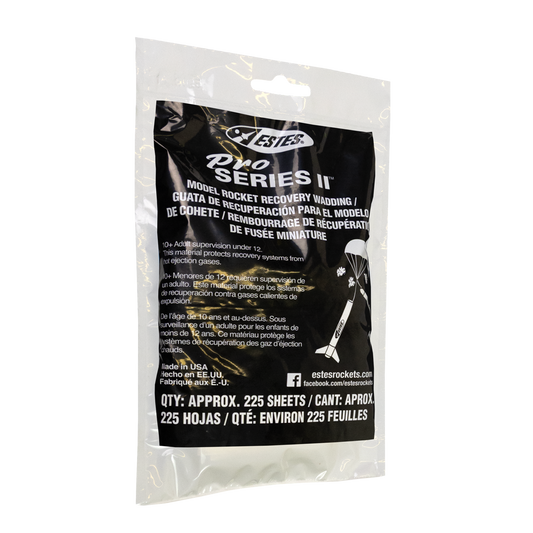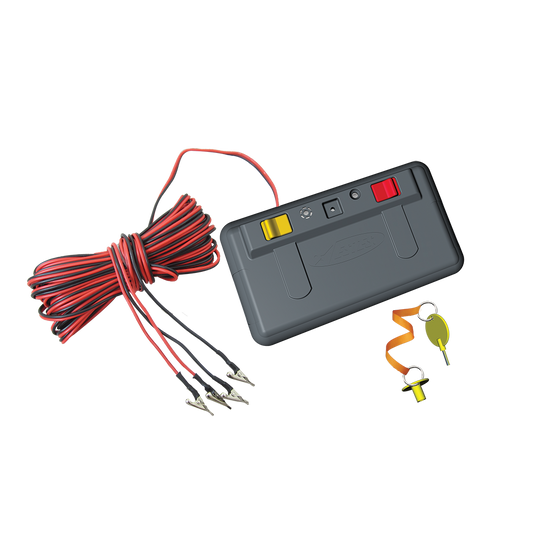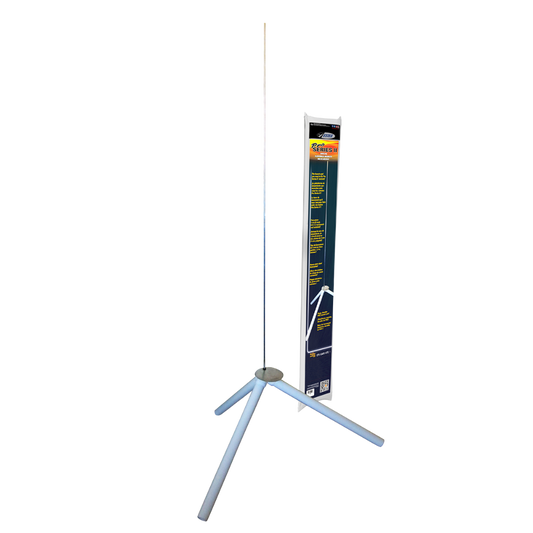Porta-Pad E Launch Pad and Pro Series II Launch Controller, Estes model rocket engines, starters and Pro Series II Recovery Wadding.
Six C 1.5V high quality AA alkaline batteries (sold separately)
What You Need to Fly
-
 Sold out
Sold outF15-8 Engines (29 mm)
4.6
(11) 11 total reviews
Regular price $32.99Regular priceUnit price / per$32.99Sale price $32.99Sold out -
 Best Seller
Best SellerPro Series II™ Recovery Wadding
4.8
(13) 13 total reviews
Regular price $10.99Regular priceUnit price / per$10.99Sale price $10.99 -
Pro Series II™ Launch Pad
4.3
(7) 7 total reviews
Regular price $59.99Regular priceUnit price / per$59.99Sale price $59.99 -
 Best Seller
Best SellerPro Series II™ Launch Controller
4.5
(23) 23 total reviews
Regular price $43.99Regular priceUnit price / per$43.99Sale price $43.99





